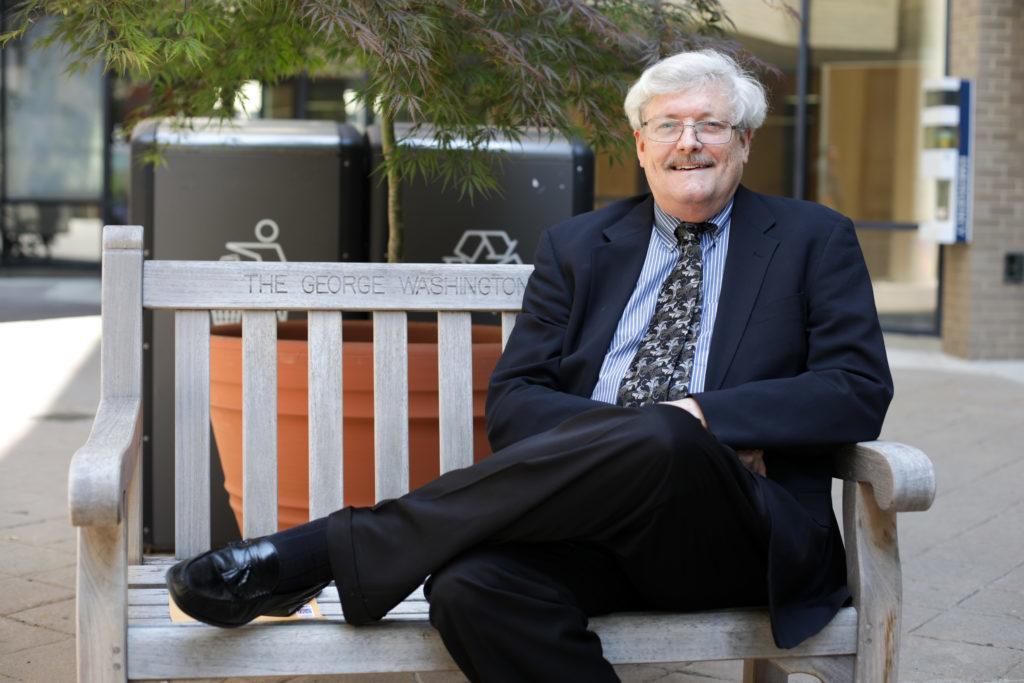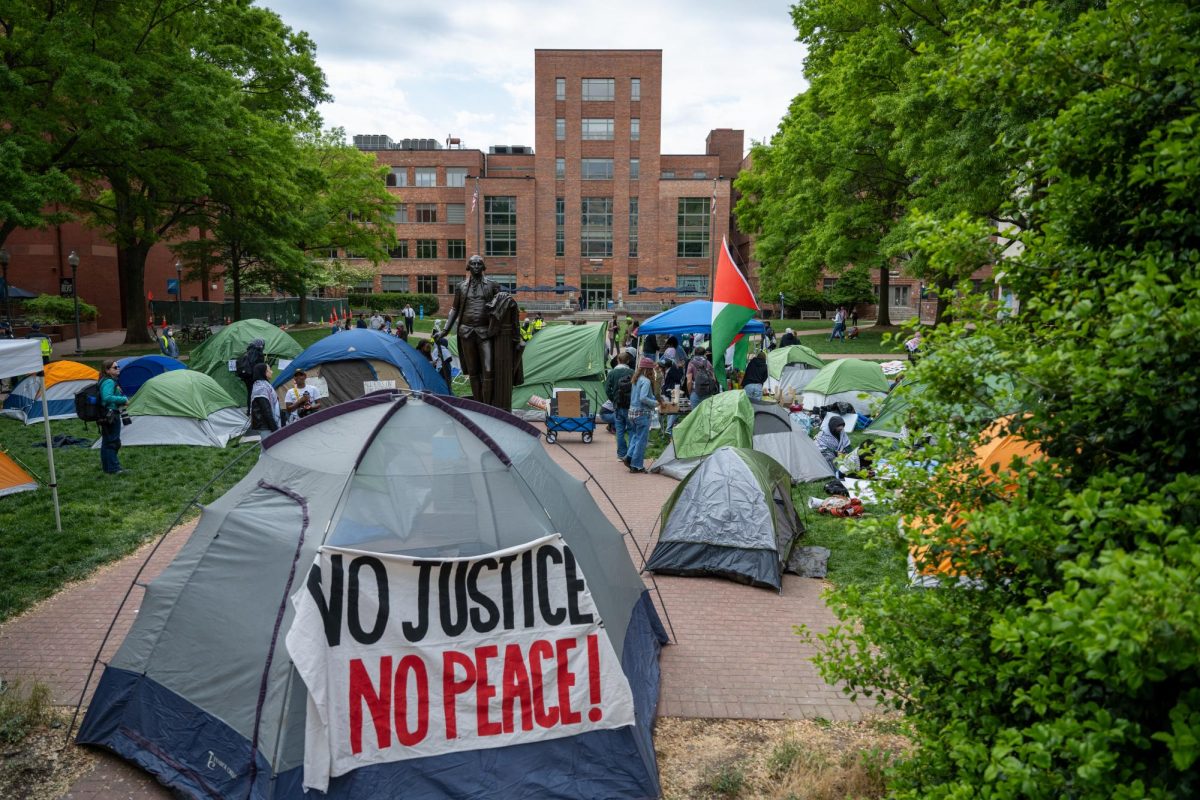More than four decades ago, Paul Churchill, an elementary school teacher in Baltimore who was dismayed by the violence of the Vietnam War, decided to make a career change.
Searching for a way to make sense of the conflict and pondering questions of morality and human rights, he turned to philosophy.
“I thought if I need to think about these issues, and sort of decide how I stand on them, then what type of work would be most conducive to doing that?” Churchill said. “And I realized, in fact, philosophy would be.”
Churchill earned his doctorate degree in philosophy in 1975 at Johns Hopkins University and became a professor at GW that same year. Now, after more than 40 years teaching students about the philosophy of war and peace, Churchill plans to retire this summer.
Colleagues said he brought a unique and new perspective to the department with his focus on human rights and peace studies. Churchill played a major role in developing some staples of the current curriculum, helping to create and direct the peace studies minor before the department eventually made it a major, faculty said.
While directing the program, Churchill launched a peace studies conference in the early 1980s, bringing undergraduate and graduate students interested in the topic to different D.C. universities to present papers and hold discussions. He said the conference has not been held in the last few years.
Churchill also helped start the University Honors program in 1990, teaching the first course, Western Society and Civilization, that the program offered.
He recalled being allured by the distinction of teaching the first class of the new program, but unsettled by the amount of pressure there was to succeed.
“I started off feeling very nervous about it, because everybody was watching,” he said. “But the students were so exhilarating and I thought that they were so wonderful, and the course was a tremendous success.”
Churchill has taught several different courses over the years, many of which delve into the ethics of war, including Philosophy of Nonviolence and Philosophy of Human Rights.
He said those topics make for interesting courses because they are always relevant.
“The vitality of those subject matters and of students interested in them has always been very motivating and meaningful for me,” he said.
Churchill said he often recruits guest speakers, often human rights activists, to his classes to show different perspectives. He said students often become involved in the peace movement after taking his courses, working with organizations like Human Rights Watch or Amnesty International.
After he retires, Churchill said he will continue writing essays and books and conducting research on human rights around the world. He is currently working on several books on issues like gun control, domestic extremism and honor killings, a practice in some cultures when a family member is killed when they’re believed to have brought dishonor or shame to the family.
Many of Churchill’s colleagues in the philosophy department said they have fond memories of his time at GW, both professional and personal. David DeGrazia, a professor of philosophy, recalled that when he got married Churchill arranged for the department to buy an original framed painting for him and his wife as a wedding present.
“I think he must have taken up a collection and gone to a lot of effort,” he said. “And that very beautiful piece of art is still in our kitchen.”
DeGrazia said Churchill brought a new focus on contemporary international issues to a department that previously focused heavily on theory. Churchill chaired the department for a total of 10 years, on three separate occasions, from 1986 to 1988, 1992 to 1994 and 1997 to 2003.
DeGrazia said Churchill served as the president of Concerned Philosophers for Peace and currently serves as the secretary of the Society for Philosophy in the Contemporary World.
“He has, during his career, increased the department’s engagement with global and international issues, especially in connection with ethics, like human rights,” DeGrazia said.
Tadeusz Zawidzki, the chair of the philosophy department, said he worked with Churchill on a tenure-track hiring committee.
“I found Paul a very gracious, even-handed, yet at the same time perceptive interviewer,” he said in an email. “The success of that search owes much to his erudition and fair-mindedness.”
Zawidzki said he will miss his longtime colleague when he retires, but that Churchill has earned the time off.
“I thought I would miss him, but also that he deserved a rest from his extremely busy and productive career,” he said.





